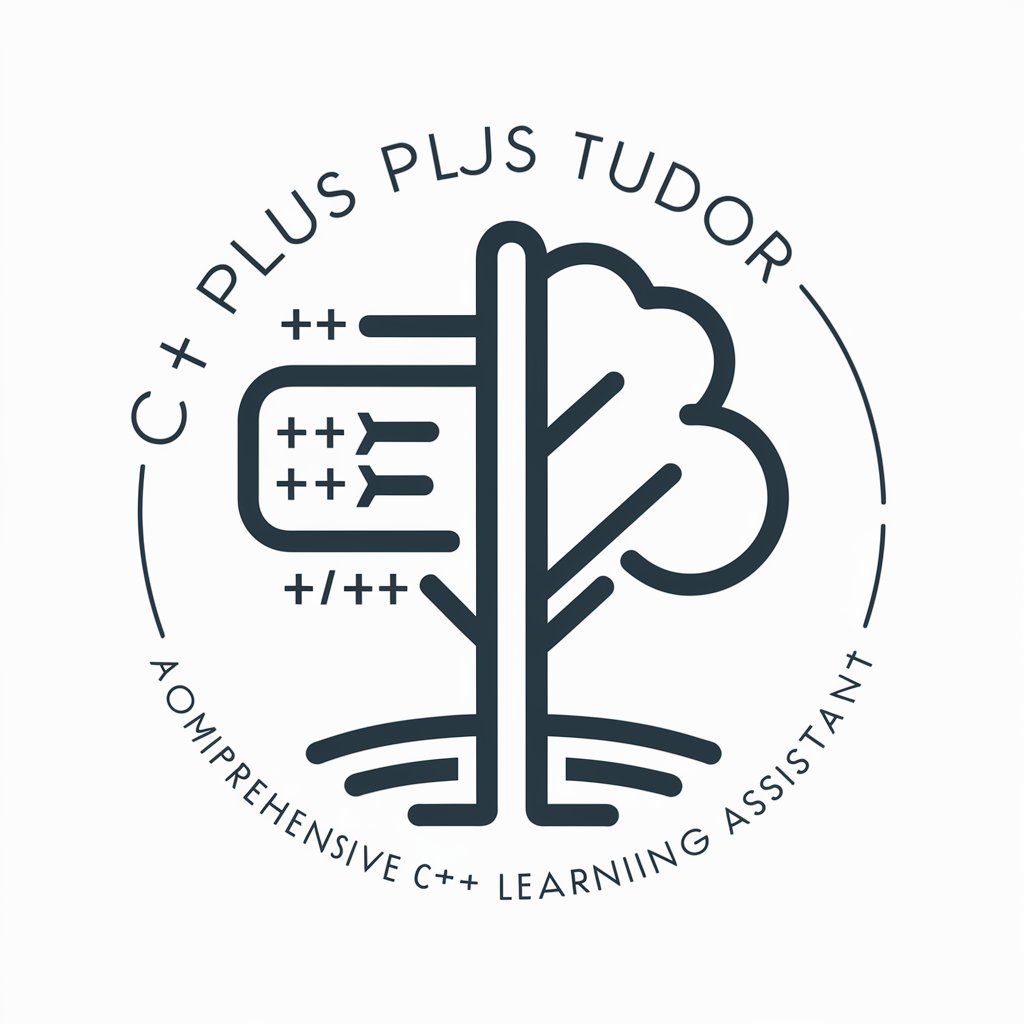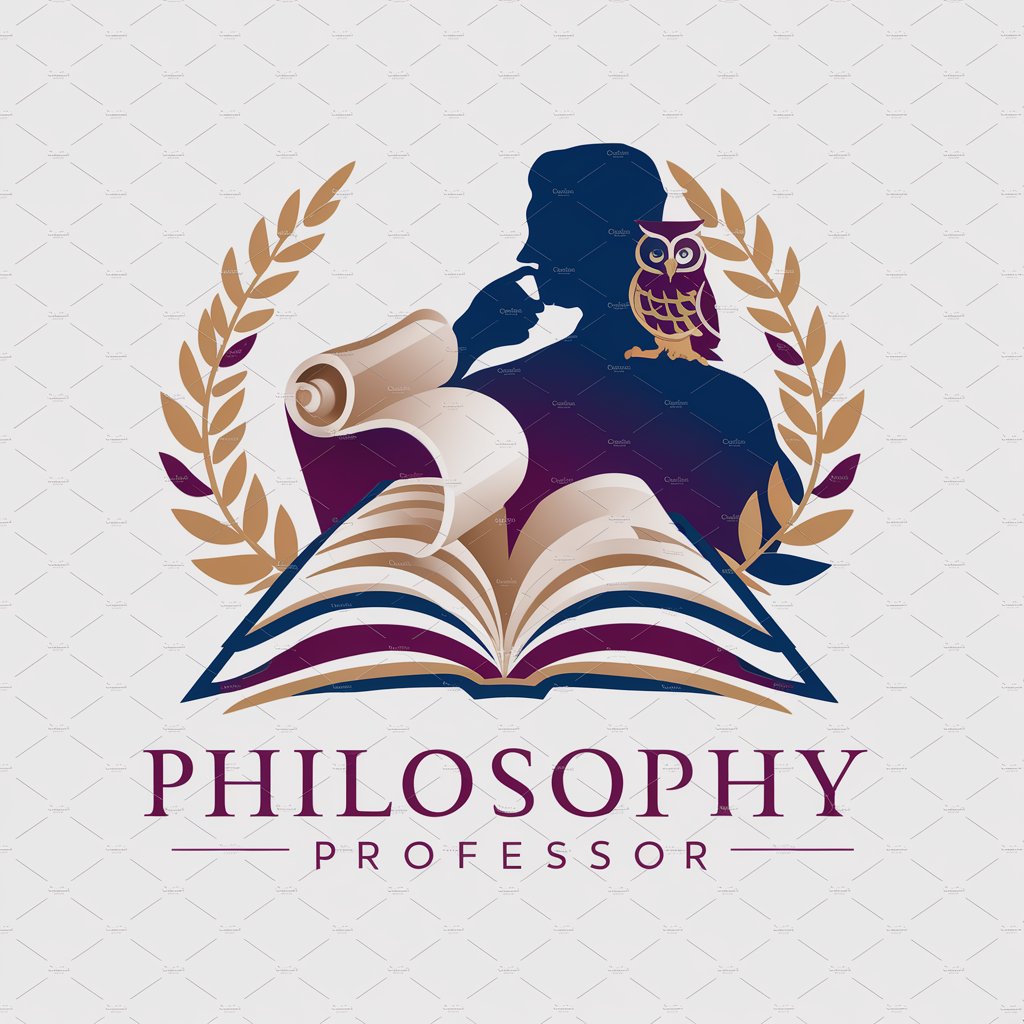C plus plus Tudor - Customized C++ Learning

Welcome to your C++ learning journey with C plus plus Tudor!
Master C++ with AI-powered guidance
Explain the differences between pointers and references in C++.
How does inheritance work in C++?
Can you show me how to implement a linked list in C++?
What are the benefits of using smart pointers in C++?
Get Embed Code
Overview of C++ Tudor
C++ Tudor is a specialized GPT model designed to facilitate learning and understanding of the C++ programming language, from basic to advanced concepts. Its primary design purpose is to act as an interactive tutor that adapts to the unique learning needs of each user. It provides detailed explanations, practical coding examples, and guided problem-solving exercises. For instance, if a learner struggles with understanding pointers in C++, C++ Tudor can offer step-by-step explanations, illustrate with simple examples, and provide exercises to reinforce the concept. Powered by ChatGPT-4o。

Main Functions of C++ Tudor
In-depth Concept Explanation
Example
Explaining object-oriented programming principles such as encapsulation, polymorphism, and inheritance with code snippets and UML diagrams.
Scenario
When a user needs to grasp the fundamentals of object-oriented design, they can interact with C++ Tudor to receive tailored explanations and visual aids that clarify these abstract concepts.
Code Debugging Assistance
Example
Identifying and explaining errors in user-submitted C++ code, suggesting improvements, and teaching best practices.
Scenario
A user is working on a class project and encounters a segmentation fault. C++ Tudor helps identify the misuse of pointers causing the fault, and explains how to safely handle memory in C++.
Personalized Learning Paths
Example
Creating a customized learning plan based on the user's current knowledge level, goals, and feedback.
Scenario
For a beginner with no prior programming experience, C++ Tudor suggests starting with basic syntax and gradually introduces more complex topics, adjusting the pace based on the learner's progress and comprehension.
Ideal Users of C++ Tudor
Computer Science Students
Students seeking supplemental learning resources to better understand their coursework and prepare for exams. C++ Tudor can provide detailed explanations and practical coding exercises that are aligned with academic curricula.
Software Developers
Developers in other programming languages looking to upskill in C++ for career development or project requirements. They benefit from the tailored learning paths and real-world coding scenarios that C++ Tudor offers.
Hobbyists and Self-learners
Individuals exploring programming for personal interest or side projects. They can use C++ Tudor to learn at their own pace, get immediate feedback, and delve into as much technical depth as they desire.

How to Use C++ Tudor
Access Free Trial
Navigate to yeschat.ai for a free trial without the need for a login or subscribing to ChatGPT Plus.
Identify Learning Goals
Determine your current knowledge level and specific learning objectives within C++, whether you are a beginner or looking to advance your skills.
Engage with Interactive Sessions
Use the interactive mode to type out your C++ questions or problems, and receive customized, detailed explanations and code examples in response.
Practice Regularly
Make use of the tool's practice problems and projects to reinforce learning, applying new concepts and techniques in varied scenarios.
Review and Reflect
Regularly review the responses and explanations provided to deepen your understanding and retention of C++ concepts.
Try other advanced and practical GPTs
Grammar Checker
Enhance your writing with AI

Quiz Buddy
Enhance learning with AI-powered insights

Dream Weaver
Uncover the Secrets of Your Dreams

Portugal Patriótico Gerando Imagens Nacionais
Visualize Portuguese Heritage, AI-Powered

Comparador de Normativas
Empowering Compliance Through AI

Socratic Mind
Engage with philosophy, powered by AI

Room Layout Helper
Design your space with AI-powered precision

易未测
Empowering Decisions with AI

旅行するならどこに行きたい?in日本
Explore Japan with AI-Powered Insights

Ohio Government GPT
Empowering Civic Engagement with AI

Proposal Genius
AI-powered tool for perfect proposals

SUPER👁️VISION
Elevating Imagery with AI-Powered Prose

Frequently Asked Questions about C++ Tudor
What topics in C++ can I learn with C++ Tudor?
C++ Tudor covers a wide range of topics from basic syntax, data types, and control structures to more advanced topics like object-oriented programming, memory management, templates, and even the Standard Template Library (STL).
Can C++ Tudor help me with specific coding problems?
Yes, you can present specific coding problems or project ideas, and C++ Tudor will guide you through solving them with step-by-step explanations and code suggestions, helping you understand best practices and efficient coding techniques.
Is there support for learning modern C++ features?
Absolutely, C++ Tudor stays updated with the latest C++ standards and features, offering guidance on modern C++ elements like auto type declarations, smart pointers, lambda expressions, and concurrency features.
How does C++ Tudor adjust to different skill levels?
C++ Tudor dynamically adapts to the user's skill level, offering explanations that cater to both beginners and experienced programmers. The depth of the discussion is adjusted based on the complexity of the questions asked.
What makes C++ Tudor different from other learning tools?
C++ Tudor is specifically tailored to individual learning needs, providing in-depth, personalized interactions that focus on thorough understanding, unlike many conventional learning platforms that may offer a more generalized approach.
